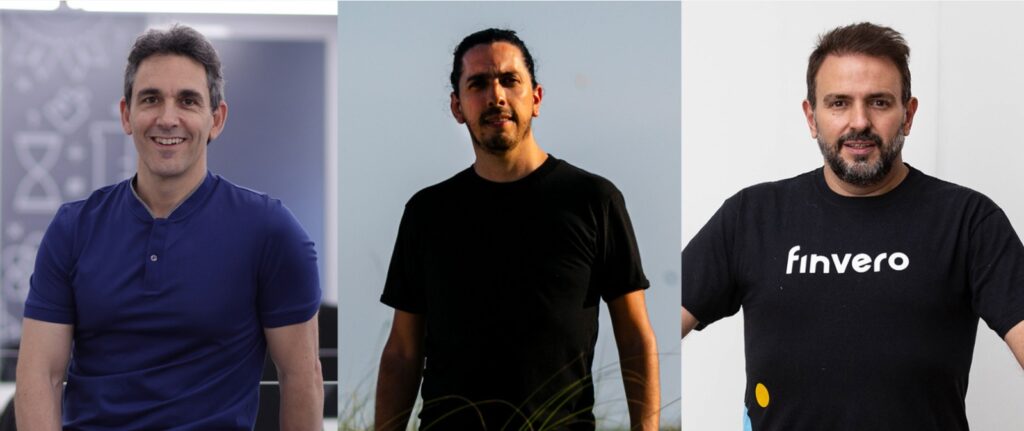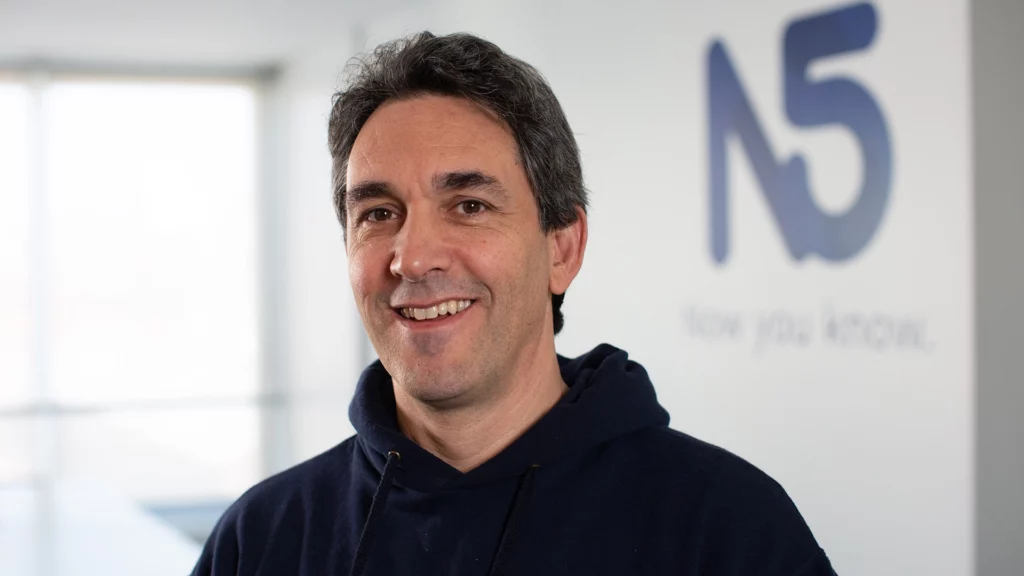
When Mario Hernández first arrived in Mexico in 2010, he met his wife’s family, they exchanged hugs, and he immediately entered the world of the unbanked.
His Mexican in-laws, Hernández learned, would fight to get credit from any bank, which put them in the cash-only majority in that country.
Financially, the family is doing better. To Mexico, not so much: the World Bank estimates that 63 percent of adults in the country, almost 100 million people, lack a bank account and rely exclusively on money in their wallets or kept at home to pay for food, housing, medicines and any other product. In Latin America, 7 out of 10 people are unbanked or do not have certain banking services, according to Latin America Reports, and this has led to one of the highest rates of income inequality in the world.
“When I saw that in my family I said ‘no, this can’t be,'” says Hernández, who came to Mexico from Spain, where he ran a digital banking and payment processing company. In his new land, Hernández set to work to reduce those disparities, eventually launching Finvero, a platform that offers credit to consumers through a payment option on e-commerce websites.
“We decided to become a marketplace so that we could get everyone together and say: Ok, we have to solve the problem. It will be a good business for everyone: for the lender, for the merchant and for the buyer,” says Hernández. “We have to tackle the problem together.”
Today, Mexico City-based Finvero, along with other digital native companies such as N5, founded in 2017 in Argentina, and ClearSale, founded in 2001 in Brazil, are at the forefront of the fintech boom in Latin America, that transforms online marketplaces across the region with the goal of guiding millions of previously unbanked consumers into the digital economy.
Finvero describes itself as the first consumer loan marketplace in Mexico and connects businesses, loan agencies, and consumers to address the problem of the unbanked or underbanked population in the country. The company says it provides alternative credit scoring and loan disbursement in less than five minutes.
N5’s platform helps banks, insurance companies and other financial services businesses transition from their traditional systems to the digital world without changing their core technologies. ClearSale offers fraud protection and risk management for multiple industries, including e-commerce, financial services, telecommunications, and more.
All three companies rely heavily on artificial intelligence (AI) to make real-time decisions that help their customers. And each company has leveraged Microsoft relationships and technologies to build their infrastructures, improve their products, and win new customers.
s people who first embraced the digital economy, in some cases to try to lift themselves out of poverty.
“Because we make decisions that take identity theft into account, (we need to make sure they’re) based on the likelihood that someone has that data, not based on social bookmarking,” Lourenco says.
“You could say, ‘Well, this person lives in a favela, so I’m not going to approve this request.’ And that’s not what we do,” Lourenco says. “We focus on the problem we are trying to solve: Is this person who they say they are?”
At the same time, he adds, ClearSale directly expands financial inclusion through its ClearTech program, which trains entry-level employees, including contact centers, to become technologically savvy. The program operates in conjunction with Microsoft.
At N5, CEO Julián Colombo tackles that same big problem with the same urgency. His company has offices in Buenos Aires, Argentina; Madrid Spain; Sao Paulo, and Miami.
For more than 30 years, Colombo has held positions in the financial industry, including one of the largest banks in Europe. He learned firsthand the inherent difficulty for traditional banks to embrace digital transformation to boost customer service.

“Banks want to create better experiences; they just can’t,” says Colombo. “And they can’t because (adding) the technology for banks is like building an airplane while you fly. You can’t tell a customer: ‘I won’t give you your balance for three months because I need to change my software.’ I saw that dilemma from within.”
In 2017, he left banking to create software designed for the financial industry and its unique constraints, including data regulation, extreme privacy, and outdated traditional systems. What came next was the N5 platform, which plugs into all existing software in a simple way, enabling “huge and rapid innovation without changing underlying traditional systems,” says Colombo.
On the street, the new company boosted financial inclusion: in places where banks simplify their transactions and expand access to credit, the distribution of wealth increases and “people live better lives,” says Colombo.
In Argentina, as in many Latin American countries, historical distrust of banks and the financial system in general has fueled the rise of “non-regular work and living spaces,” says Colombo. “We need to make sure that those workers can save their hard-earned money, can access credit and many other things that allow them to advance and develop.”
Approximately 7 million N5 customers, mainly in Brazil, Argentina and Mexico, have joined the digital economy through the company’s solutions. N5 executives expect that number to double by 2023, particularly with new N5 operations in Peru, Paraguay and the United States.
We need to make sure that these workers can save their hard-earned money, can have access to credit and many other things that allow them to advance and develop.
Julián Colombo
N5, like Finvero, built its product with AI and machine learning capabilities across a suite of Microsoft products, including Azure Cognitive Services, machine learning operations, Azure Databricks and Azure Form Recognizer, Colombo says, adding that the AI and machine learning are “critically involved in all decision making within the tool.”
“Human beings are great at creating and nurturing trusting relationships, providing empathy, and holistic advice. AI should help them spend time on that by making decisions efficiently,” says Colombo.
N5, also like Finvero, participated in the Microsoft for Startups Founders Hub program, which provides up to $150,000 in free Azure credits and connects startups with business experts, mentors, and technical advisors. In 2021, Microsoft named N5 Startup of the Year in the business excellence category for the Latin American and Caribbean region.
“Starting a tech company is never easy, especially when you were completely stuck, like we were,” says Colombo. “I often say that Microsoft was kind of a sponsor at the beginning, giving us what we needed to really focus on delivering to our customers and improving our product.
“Later, the relationship matured into a partnership through which we can get closer to customers and offer a holistic solution to their needs.”
Through its partnership with Microsoft, N5 has acquired more than 20 customers in the banking and insurance industries.
Finvero, which launched in 2021, relies on Azure to provide an integrated platform that helps the company offer new services for its consumer credit business, Hernández says.
By building its infrastructure on Azure, Finvero was able to apply a lightning-scaling approach, a strategy that prioritizes speed for rapid growth. During Finvero’s first full year of operations, more than 150,000 e-commerce users were rated by the company’s credit marketplace. During 2023, Hernández forecasts that more than 3 million people will request a loan with the company.
Today, Finvero’s customer base spans 520 retailers, the company says, and a network of 30,000 stores. Each month, Finvero receives tens of thousands of credit applications from buyers. It uses AI to score buying patterns and make decisions on those credit applications in real time.
Finvero’s digital marketplace targets, but is not limited to, unbanked or underbanked shoppers in the region. This task, says Hernández, helps increase financial inclusion, as he himself promised to do 13 years ago when he saw his in-laws try again and again to obtain a loan from traditional banks.
“We unite the best bank with the best credit service option for each buyer, with the best terms and conditions so that the loan is affordable,” says Hernández. “We are a financial friend to our clients.”
Main image: From left to right, Julián Colombo from N5, Rafael Lourenco from ClearSale and Mario Hernández from Finvero. Image of, from left to right, N5, Eva Marie Uzcátegui and Octavio Hoyos.
Microsoft Source.
Journalist: Bill Briggs

